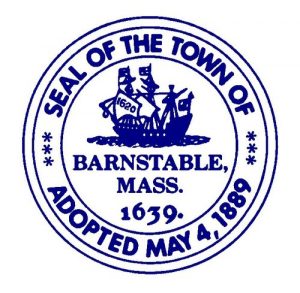 HYANNIS – If you or a loved one are diagnosed with Alzheimer’s disease or a related dementia, it can be overwhelming. Suddenly, the retirement you had planned is derailed and a new plan is necessary.
HYANNIS – If you or a loved one are diagnosed with Alzheimer’s disease or a related dementia, it can be overwhelming. Suddenly, the retirement you had planned is derailed and a new plan is necessary.
There is no cure for Alzheimer’s, but there are things you can do to make the most of the present and navigate the tough road ahead. Because of that, early detection is of utmost importance, according to neurologist Sean Horrigan, DO, of Neurologists of Cape Cod in Hyannis.
“It really is a game changer when someone gets diagnosed with Alzheimer’s disease or a related dementia,” he said. “When a partner or loved one is suffering from a progressively worsening cognitive impairment, it’s time to rethink and re-evaluate a care plan for this person and your family. What are you going to do this year? What are you going to do five years from now?”
Dr. Horrigan offers the following tips for families dealing with Alzheimer’s or dementia:
Don’t ignore the problem.
If you suspect that you or a loved one is having cognitive difficulties, speak up and tell a doctor. Signs can include:
Problems remembering things
Difficulty paying bills
Forgetting to take medications
Trouble driving and small fender benders
Often spouses cover for each other, but that doesn’t help anyone. If you are afraid of offending a loved one by speaking in front of him or her, pull a nurse aside and explain that you’d like a few moments in private with the doctor. Or write a letter to the doctor explaining exactly what symptoms you’ve noticed that concern you.
“It is so important to get an honest and unfiltered story,” Dr. Horrigan said. “We really do rely on family members, close friends and even trusted neighbors to give us a heads up.”
Assign a healthcare proxy.
One of the first things Dr. Horrigan does is ask patients for the names of family and friends with whom they would want their health information shared, if necessary.
“Right off the bat, we are asking our patients to make a contract of trust with us to find out who in their circle is the right person to communicate this information to. Who do they trust? Sadly, sometimes that doesn’t involve certain family members. That’s why we can’t assume. We’ve just got to ask right up front, ‘who is part of your care team?’” he said.
Always bring a member of your personal care team to doctor’s appointments.
This can be a spouse, a friend or even a hired case worker. Complex medical information is hard for anyone to digest, but it’s even harder for someone suffering from cognitive problems.
“They are not going to be able to understand all of the information we are providing,” Dr. Horrigan said. “It can be pretty daunting even for someone with a good working memory to meet a doctor and go over all of this information.”
Taking notes is a good idea as well.
Create a care plan.
Most people want to remain in their home and spouses are often willing to be caregivers, especially when the diagnosis is fresh. Dr. Horrigan asks caregivers to come up with a plan for what happens if the caregiver gets sick or burned out. Identify sources that can help, such as an adult child, family member or friend. Don’t be afraid to ask for help. Most people want to help.
“I’m always impressed by the love and support I see for my patients from families, friends and other members of our community,” he said.
Get help from community resources that are trained in dementia care.
Research shows that those who connect to support services earlier in the disease progression do better over time. There are some wonderful resources in the community that can help families navigate including:
Hope Dementia & Alzheimer’s Services at HopeHealth
Alzheimer’s Association
Alzheimer’s Family Support Center of Cape Cod
Visiting Nurses Association of Cape Cod
Local support groups
Realize that driving can be dangerous – before someone gets hurt.
Losing the ability to drive is one of the biggest issues for many patients, and whether it is still safe is often a challenging conversation, Dr. Horrigan said. Anyone with a diagnosis of dementia needs to prove to themselves and to the community that they are capable of driving. The RMV offers an affordable driving test, but if you fail it, your license can be revoked, so many patients don’t want to take that chance.
Spaulding Rehabilitation in Sandwich offers a driving assessment program with an occupational therapist and Neurologists of Cape Cod is also starting their own driving test.
Embrace the present, but plan for the long term.
“Everybody’s story is different,” Dr. Horrigan said. “The average life expectancy after diagnosis is 8 to 10 years. In some cases, however, it can be as short as three years or as long as 20 years. It’s really dependent on the age of diagnosis and a person’s overall health.”
Most patients he meets have a pretty strong plan A for dealing with the disease, in Dr. Horrigan’s experience. But very few have a plan B or a plan C. It’s important to come up with alternative plans before you actually need them.
























